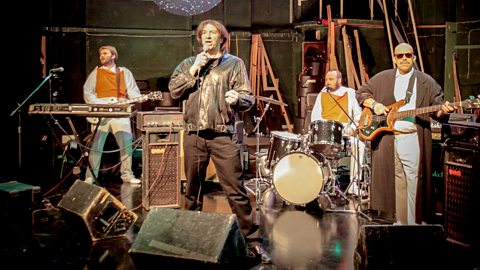Interview with BBC Assistant Producer Philip Goldie
TV Editor Laura Primiceri spoke to Philip Goldie, a Warwick graduate who is currently working as a BBC Production Assistant.
Boar TV: Could you tell us a bit about your current position as a Production Assistant at BBC Comedy– what does your job involve? Do you enjoy it?
Philip Goldie: My job is to support the production coordinator and manager, organising the filming and final delivery of the programme. Since I work in a small team, my role is quite multi-faceted; I often scout locations, help on set, film second unit material and manage the rushes. Splitting my time between the set and the office has given me a substantial overview of how programmes are put together. It’s been my ideal of a junior role.
Boar TV: When did you decide that television and short film production was the area that you wanted to go into?
Philip Goldie: I decided early on I wanted to be involved in narrative TV and film. As a teenager, I shot funny, gory short films with my friends and fell in love with the filmmaking process. That led to me winning a competition run by the creators of Skins, to direct a pilot for an online series called Brink. Those formative experiences really shaped my future career path.
Philip Goldie is currently working as a Production Assistant for BBC Comedy (photo source: Philip Goldie)
Boar TV: Was Warwick a good place to start a career in television? What societies or services were the most useful to you?
Philip Goldie: Warwick is a very good place to start a career in television. Societies like Warwick TV and RAW gave me invaluable hands-on experience using industry equipment. In particular, learning to edit on Final Cut Pro is something I couldn’t have managed without access to the Warwick TV suite. My knowledge of that software really endeared me to my current employers. There is also a bright, vibrant student community at Warwick. I made a number of friends who were more than willing to help me make things. And while there isn’t a technical production course on offer, the tutors in the Film and TV department are some of the best in their field and will help you build a critical understanding of the industry and its programming
Warwick is a very good place to start a career in television. Societies like Warwick TV and RAW gave me invaluable hands-on experience using industry equipment.
Boar TV: Has the road so far been an easy one? What happened once you left University?
Philip Goldie: It was a difficult path after leaving university. It took twenty five months from my graduation in 2011 to find this job and I was unemployed or underemployed for a significant portion of that time. I did a few post production jobs, worked in shops and interned for a while. I also ran a successful short film night and made a few shorts of my own. These side projects were crucial in providing evidence of my enthusiasm and experience to prospective employers.
Boar TV: I remember that in your speech at the Careers event you mentioned a number of different projects you’ve worked on since leaving University, on The Life of Rock and Strictly Come Dancing for example; could you expand on some of your favourites?
Philip Goldie: Series two of The Life of Rock with Brian Pern is the programme I’m most proud to have worked on. The first series went out on BBC4 in January and while the reviews were strong, the audience share was lower than hoped. This new series is much bolder, much more ambitious and very funny. There’s been a surge of confidence behind it, and having started my job on series one it feels like that surge has mirrored my own progress. The transmission date is still to be confirmed, but I’m excited to see how it’s received.

Philip has worked on a number of different projects at the BBC, including The Life of Rock with Brian Pern (photo source: bbc.co.uk)
Boar TV: At the Careers event you also spoke about idea you’ve pitched to the BBC Writers Room: first off, what is the Writer’s Room?
Philip Goldie: The Writer’s Room is a BBC scheme, open to the public, for unrepresented writers to send in their ideas and screenplays.
Boar TV: Second, can you tell us about the script you submitted and your hopes for it?
Philip Goldie: I’ve written a pilot with another Warwick alumni, Edward Smith. It’s called Peter Geist: Psychic Detective, it’s about a policeman who talks to ghosts. We made a pretty bad short film of it while we were students, but the feedback on the pilot has been positive. If it gets us an agent I would be very happy.
It’s crucial to consider how important job security is to you: freelancing means a great deal of fixed term and short term contracts.
Boar TV: And as a final question, do you have any parting advice for students at Warwick aspiring to a career in television?
Philip Goldie: It’s crucial to consider how important job security is to you. Freelancing means a great deal of fixed term and short term contracts, and I’ve found the unemployed periods in between difficult. Your career might not be this relentless upward curve, rising exponentially according to ambition and drive; be prepared to hit dead ends, plateau, go round in circles a bit. While working in such a high pressure industry can be stressful, it is often fun, interesting and exhilarating.

Comments